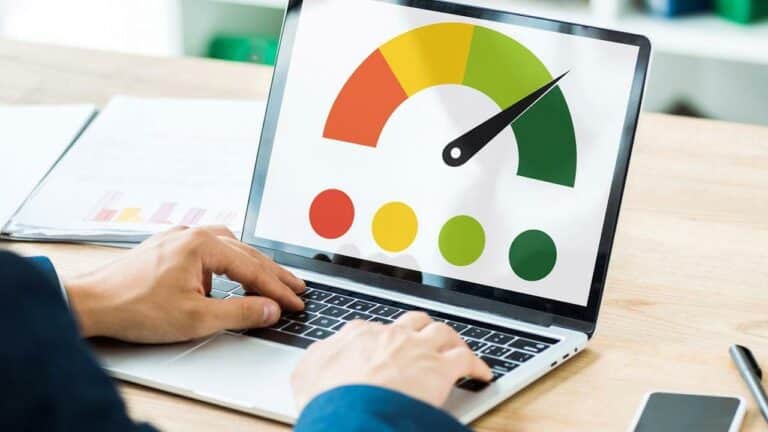Nothing kills productivity quite like a sluggish computer. Whether you’re working on important projects, streaming your favorite shows, or simply browsing the web, a slow machine can turn simple tasks into frustrating ordeals. The good news? You don’t need to be a tech expert to breathe new life into your computer. With a few strategic adjustments and regular maintenance habits, you can significantly boost your system’s speed and efficiency.
Computer slowdowns happen for various reasons—from accumulated digital clutter to outdated software and hardware limitations. Understanding these causes and implementing the right solutions can transform your computing experience from frustrating to seamless. The following strategies will help you optimize your system’s performance without breaking the bank or requiring advanced technical knowledge.
Regularly Update Your Operating System
Your operating system serves as the foundation for everything your computer does, making regular updates crucial for optimal performance. Software developers continuously release patches and improvements that fix bugs, close security vulnerabilities, and enhance system efficiency. When you postpone these updates, you’re essentially asking your computer to run on outdated code that may contain performance bottlenecks.
Modern operating systems such as Windows 11 and macOS incorporate implicit optimization features. These updates often include new drivers for hardware components, improved memory management algorithms, and better resource allocation protocols. By staying current with updates, you’re ensuring your system can take advantage of these performance enhancements.
Setting up automatic updates removes the guesswork and ensures you never fall behind. Most systems allow you to schedule updates during off-peak hours, so the process won’t interrupt your work. Remember that major system updates may require a restart, so plan accordingly to avoid losing unsaved work.
Uninstall Unused Programs
Over time, computers accumulate software like digital pack rats. Trial programs, forgotten applications, and bundled software that came with your computer all consume valuable system resources, even when they’re not actively running. Many programs launch automatically when you start your computer, creating background processes that eat up memory and processing power.
Please take a moment to review your installed software and consider uninstalling any applications that have not been used in the past six months. Pay special attention to resource-heavy applications like video editing software, games, and development tools that you may have tried once and forgotten. These programs often install additional components and services that continue running long after you’ve stopped using the main application.
Use your operating system’s built-in uninstaller rather than simply deleting program folders. A thorough uninstallation guarantees the complete removal of registry entries, temporary files, and associated services. For stubborn programs that don’t uninstall cleanly, consider using third-party uninstaller tools that can remove leftover files and registry entries.
Clean Up Your Hard Drive
A cluttered hard drive is like a messy desk—it makes everything harder to find and slows down your productivity. When your storage drive becomes full, your operating system struggles to find space for temporary files, virtual memory, and system operations. Most computers perform best when at least 15–20% of the hard drive remains free.
Start by identifying and removing large files you no longer need. Download folders, old video files, and duplicate photos are common culprits that consume significant space. Use built-in disk cleanup tools to remove temporary files, browser cache, and system logs that accumulate over time. These tools can often free up several gigabytes of space with minimal effort.
Consider moving large files like photo libraries, videos, and archived documents to external storage or cloud services. This strategy frees up local storage and provides backup protection for your important files. For computers with traditional mechanical hard drives, maintaining adequate free space is especially critical for performance, as these drives slow down significantly when nearly full.
Run a Virus Scan
Malware and viruses don’t just threaten your data security—they can severely impact system performance. Malicious software often runs continuously in the background, consuming CPU cycles, memory, and network bandwidth. Some malware is designed specifically to hijack your computer’s resources for cryptocurrency mining or participating in botnets, leaving little processing power for your legitimate activities.
Modern antivirus software goes beyond traditional virus detection to identify performance-impacting threats like adware, browser hijackers, and potentially unwanted programs. These threats may not be technically viruses, but they can slow your system through unwanted processes, excessive network activity, and intrusive pop-ups.
Schedule regular full system scans during times when you’re not actively using your computer. Many antivirus programs offer quick scan options for daily use and comprehensive scans for weekly or monthly deep cleaning. Keep your antivirus definitions updated to ensure protection against the latest threats, and consider enabling real-time protection to prevent infections before they can impact performance.
Upgrade Your Hardware
Sometimes software optimization can only take you so far, and hardware upgrades become necessary to achieve meaningful performance improvements. The most impactful upgrade for most users is replacing a traditional mechanical hard drive with a solid-state drive (SSD). This single change can dramatically reduce boot times, application loading speeds, and overall system responsiveness.
Adding more RAM is another cost-effective upgrade that can eliminate performance bottlenecks. If your computer frequently uses virtual memory (swapping data between RAM and storage), additional memory will reduce this slower process and improve multitasking performance. Check your system’s current memory usage during typical activities to determine if you would benefit from more RAM.
For users who work with graphics-intensive applications, gaming, or video editing, upgrading the graphics card can provide substantial performance gains. However, ensure your power supply and motherboard can support the new hardware before making this investment. When considering upgrades, research compatibility requirements and consider professional installation if you’re not comfortable working with computer hardware.
Maximize Your Computer’s Potential
Improving computer performance doesn’t require expensive professional services or complete system replacements. By implementing these essential maintenance practices, you can extend your computer’s useful life and maintain optimal performance for years to come. Regular system updates, thoughtful software management, storage cleanup, security maintenance, and strategic hardware upgrades form a comprehensive approach to system optimization.
Remember that computer maintenance is an ongoing process, not a one-time fix. Establish routines for regular updates, periodic cleanups, and security scans to prevent performance degradation before it becomes noticeable. With consistent care and attention, your computer will continue serving you efficiently, allowing you to focus on what matters most rather than waiting for slow systems to respond.
FAQs
1. How often should I restart my computer to maintain performance?
Restart your computer at least once a week to clear temporary files and refresh system processes. Many performance issues resolve with a simple restart, as it clears memory leaks and resets background processes.
2. Will adding more RAM always improve my computer’s speed?
Upgrades to RAM are particularly beneficial when your current memory frequently reaches its maximum capacity. Examine your memory usage during typical activities—if you’re consistently using 80% or more, additional RAM will likely provide noticeable improvements.
3. Is it safe to use disk cleanup tools and registry cleaners?
Built-in operating system cleanup tools are generally safe and effective. However, be cautious with third-party registry cleaners, as they can sometimes cause system instability if they remove important entries.
4. How much free space should I maintain on my hard drive?
Keep at least 15–20% of your hard drive free for optimal performance. When storage becomes critically low (under 10% free), you may notice significant slowdowns in system responsiveness.
5. Can too many browser extensions slow down my entire computer?
Yes, browser extensions can impact overall system performance, especially if they run background processes or consume significant memory. Regularly review and remove extensions you don’t actively use.



